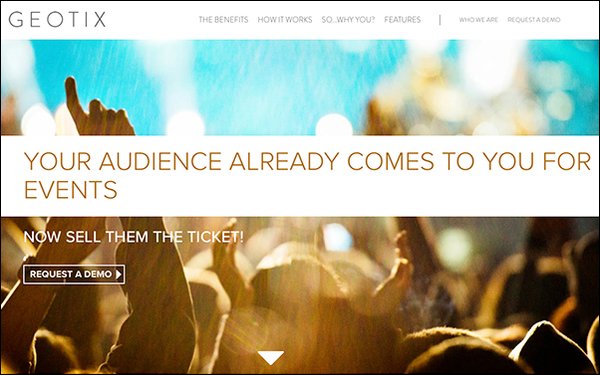GeoTix Platform Gives Publishers, Media Outlets Another Revenue Source
- by Sara Guaglione , October 13, 2017

Rather than covering a local event, such as wine tastings or concerts, then sending readers to national ticket sales providers, like Eventbrite, GeoTix is hoping publishers will use its software to create white-label e-commerce stores to sell tickets on their own — and take a cut.
“Media companies make an initial investment to produce local event content that serves their communities, but are losing out on a huge opportunity by sending their audiences away to a national ticket seller, who then pockets a $3 to $5 per-ticket fee,” says Deb Fellows, CEO of GeoTix.
“By taking on a direct role in providing tickets to their own local events, as well as events throughout the region, they can cut out the middleman to generate new revenue, build out their email databases and make their brand more relevant to consumers and event organizers alike,” Fellows says. “Those dollars stay within the local community.”
advertisement
advertisement
Mandy Niesen is the event coordinator at 904TIX, the white-label online ticket sales site created by Florida's Jacksonville magazine. She told Publishers Daily her publication has partnered with nonprofits, restaurants and other organizations on events and promotions for over 30 years.
“We already write about and promote their fundraiser. Why can't we sell the tickets for them, too?” she said.
Although GeoTix's platform officially launched in September, Jacksonville has been trying out the software for over a year.
GeoTix was created under MyNorth, a northern Michigan publishing company founded by Fellows nearly 30 years ago.
Fellows told Publishers Daily the company went searching for non-advertising revenue in 2008, after the “advertising revenues were stalling, and the Midwest economy crashed and national economy crashed.”
She came to realize that event discovery is local — the community finds out about things going on around town by reading local media — while ticket buying is national. Travelers don’t go to ticket sites to look for events, they go to local media outlets, which end up re-routing you to national sites to buy tickets, she noted.
Creating GeoTix meant tapping into a $5 billion online ticket sales market, Fellows said, citing a 2016 IBISWorld Industry Report.
In May, GeoTix raised $1 million in seed funding and was spun off from MyNorth. The company now supports 21 ticket-selling ecommerce shops. Fellows said the seed money was used, in part, to grow its sales staff, to spread the word of their software.
GeoTix's platform is used in more than 20 cities in the U.S., including Cleveland, Detroit, Louisville, Minneapolis, Omaha and New York.
Fellows said these publishers are seeing “a significant increase in revenue,” with as much as 127% growth in three years.
Another draw for publishers is data. Once a reader buys a ticket from their white-label online platform, the publisher gets a name and an email address. This can be used to send out newsletters; it is the foundation to build a stronger relationship with the reader.
"Now we have a buying relationship with someone,” Fellows said.
“We benefit from using GeoTix when it comes to additional revenue and marketing information,” Niesen added. “Not only do we collect the ticket fees now, we also collect information like emails and phone numbers, which are critical to our marketing purposes.”
Niesen said 904TIX has increased its e-newsletter subscriber list by over 6,000 in the first year of using GeoTix.
While sorting through that data is “the challenge,” Fellows said they hope to be able to automatically sort which ticket buyers are interested in what types of events in future, such as food, music or plays, and serve those readers newsletters with relevant upcoming events.
Geotix takes 25% of the fee on every ticket. MyNorth made $240,000 on ticket fees in 2016 and reached a cumulative email list of 54,000 addresses.
While the revenue isn't enough to support a media company, it may help alleviate pressure on local outlets.


